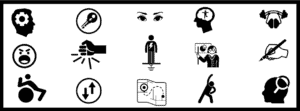Thinking vs feeling. What is the difference?
I used to say that they were as different as apples and oranges.
But I was wrong.
Thinking and feeling are actually two side of the same coin.
They are inseparable. “Mind/Body unity” means that thinking and feeling are one and the same.
“What you feel, you can heal.”
Ready to move ahead?
We’ll talk.

Contact me now to set up your free 15-minute phone consultation.









